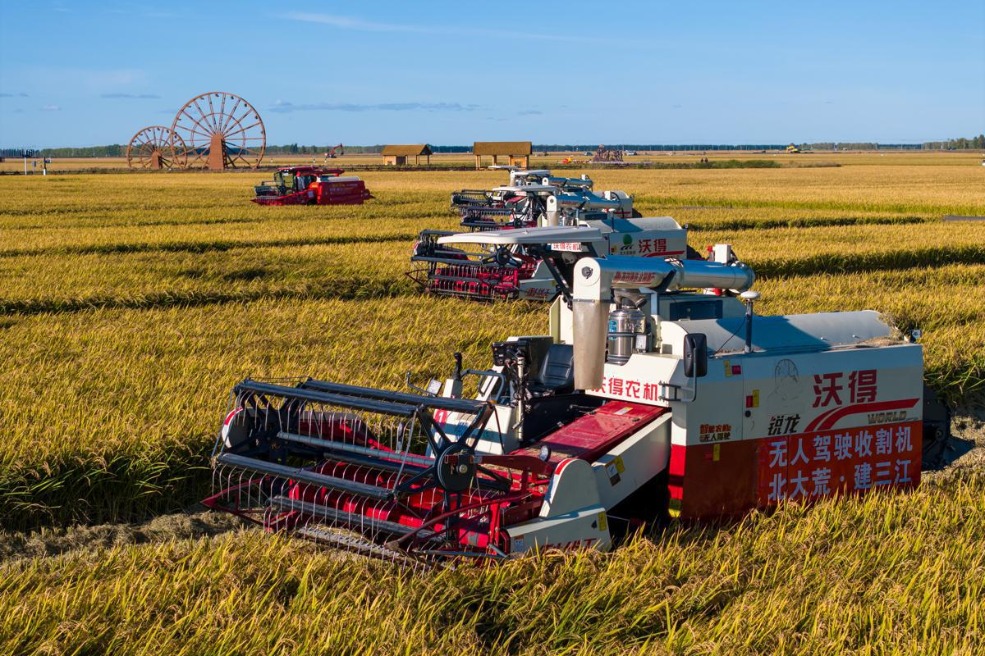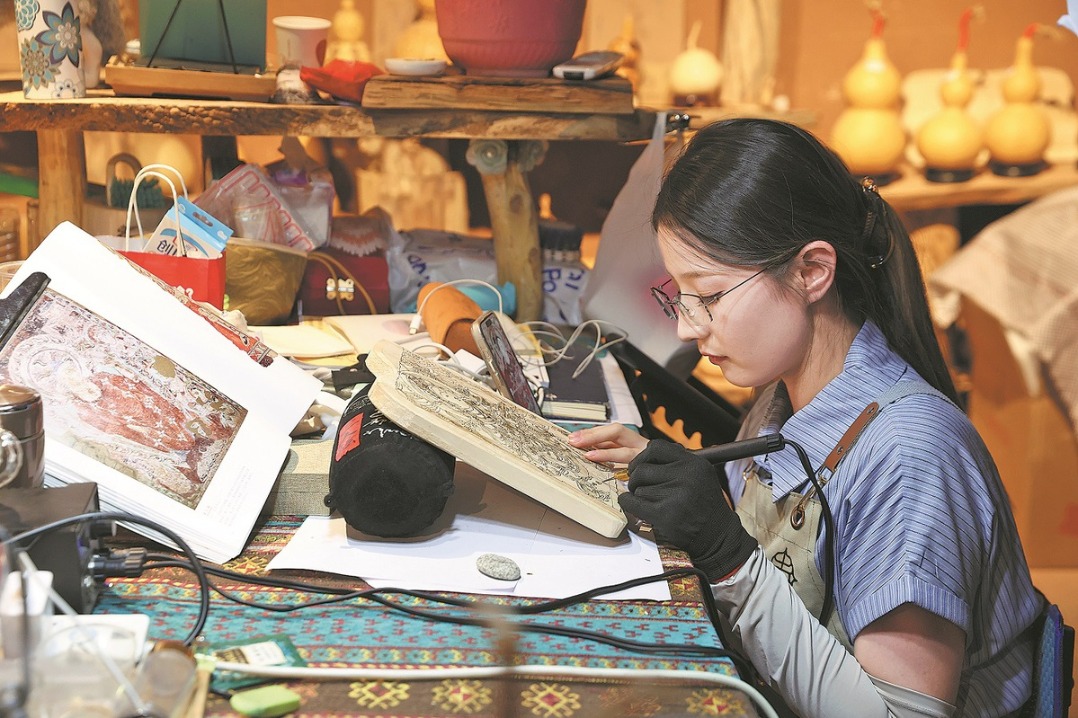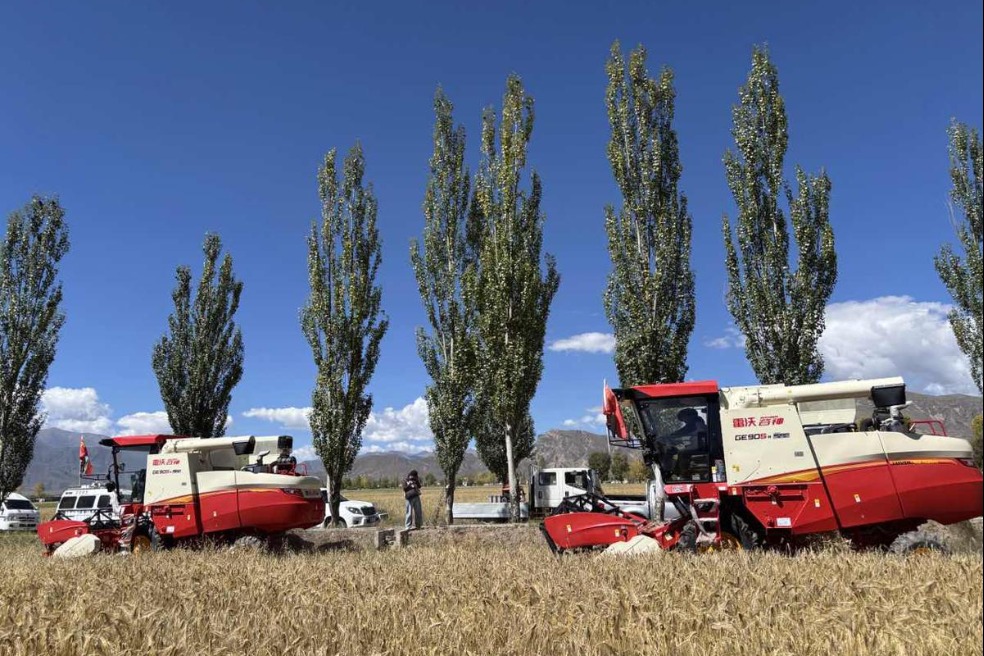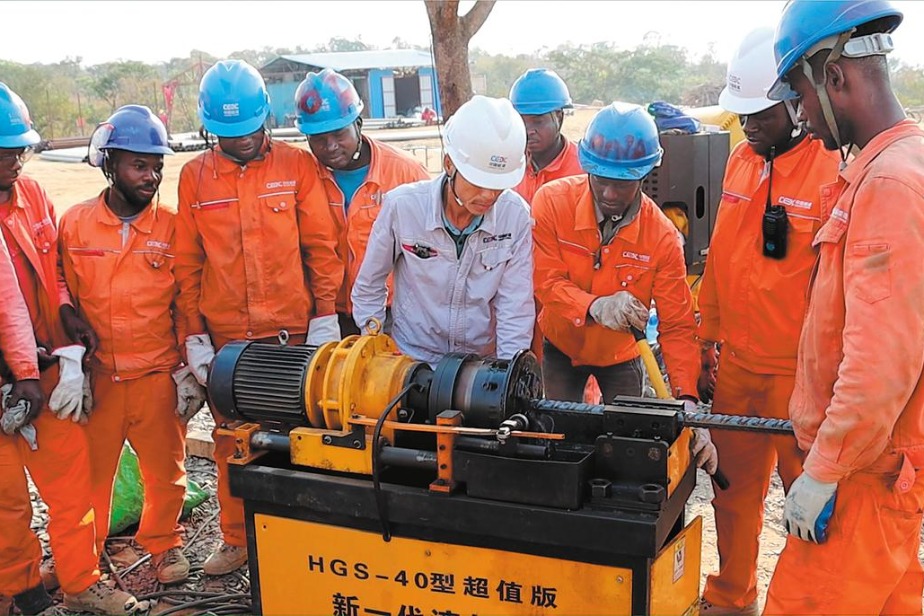Discovering a land of hope, happiness

Growing up as a Han girl in Central China, I rarely met anyone from Xinjiang in my hometown. To me, as a child, it was a distant place where everyone seemed to know how to sing and dance.
This week, that distant place became real as I came to Urumqi, the capital of Xinjiang, to cover events marking the 70th anniversary of the founding of the Xinjiang Uygur autonomous region.
Since my arrival on Monday, I have been surrounded by a strong festive atmosphere in the city, which reached its climax on Thursday with a grand gathering.
From early morning, when the sky was still dark, I found myself immersed in the local spirit — an Uygur song softly hummed by a taxi driver and a cheerful whistle from a pedestrian set the tone for the day.
By the time I reached the venue, the light of dawn was already breaking through the wispy clouds, shining on the people gathering for the celebration.
Among them, a group of men and women wearing round hats and splendid costumes — distinctly Kazakh and Uygur in style — instantly caught my eye.
They turned out to be villagers from Gejiagou in Urumqi's Shuimogou district — the eldest 64 and the youngest 23. They told me that dressing in their finest clothes was their way of expressing joy and pride at being part of such a historic occasion.
One of them, Sharmuha Satihaz, said that to celebrate the anniversary, the entire village had been decorated with lanterns and little red flags.
"The clothes we wear today were prepared as if we were grooms and brides, to show our gratitude for the happy life we now enjoy," she said, her eyes gleaming. "And, I believe, our future will only get better if we continue to contribute in our own way."
According to Sharmuha, the lives of the villagers have greatly improved over the years. They now earn more, thanks to the courtyard economy, which encourages rural families to carry out small-scale agricultural production at home, and thanks to specialty industries, such as camel milk processing plants, as well as the integration of agriculture, culture and tourism.
Her words echoed a sentiment I've heard repeatedly this week, that is, over the past 70 years, people of all ethnic groups in Xinjiang have, with unyielding spirit, turned deserts into farmland and borderlands into cherished homes.
That spirit also reflected in the voice of 14-year-old Ekda Adil, a ninth-grade student at Urumqi No 66 Middle School, who told me her story.
Ekda said she left her hometown in Shache county in Xinjiang's Kashgar prefecture in 2023 to study in Urumqi under a preferential policy, and goes home once every six months. "Each time I go back, I notice new changes," she said.
During her most recent visit in July, she said she witnessed fewer dust storms and saw better infrastructure in her hometown. Located near the Taklimakan Desert, Kashgar is an area prone to sand and dust storms, especially during spring and summer.
Shache, often known as the "home of Chinese almonds", had once primarily depended on agriculture. Today, specialty industries are helping its residents find jobs closer to home and earn higher incomes.
Ekda said her older brother, who graduated from university this year, also plans to stay in their hometown. He is now studying e-commerce, with the hope of bringing Xinjiang's local products to consumers across the country and beyond, she added.
When speaking of her own future, her voice was steady and firm. "I want to use what I've learned to help build a better Xinjiang," she told me, adding, "And I also hope that more people will come to visit, enjoy our beautiful scenery, and learn about our culture and traditions."
As I listened to the teenager, I had a brief flashback of my childhood idea of Xinjiang being a magical place where people always sang and danced.
This week, I saw that image come alive, but along with so much more. Behind the singing, dancing and colorful costumes lie pride, hope and determination. Today, Xinjiang for me is no longer that distant place in my imagination, but a living, changing land, full of happy voices that tell its beautiful story.
- Discovering a land of hope, happiness
- Xinjiang marks seven decades of growth, unity
- Forum explores promotion of sustainable development through community education
- China pledges greater role in UN peacekeeping
- SCO forum calls for greater global collaboration on traditional medicine
- China's nuclear policy highly stable, continuous, predictable: spokesman





































